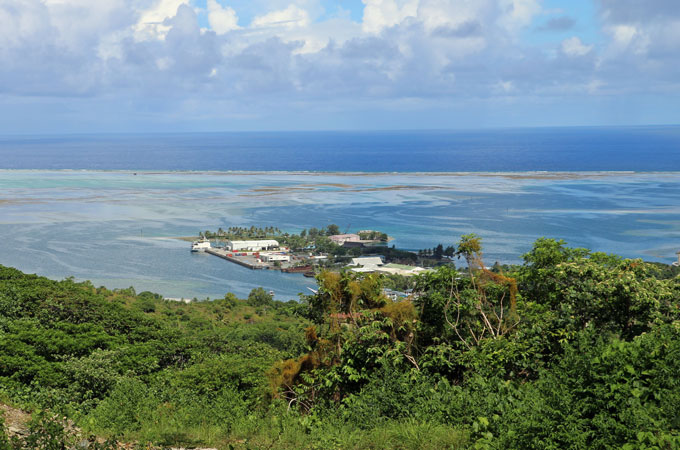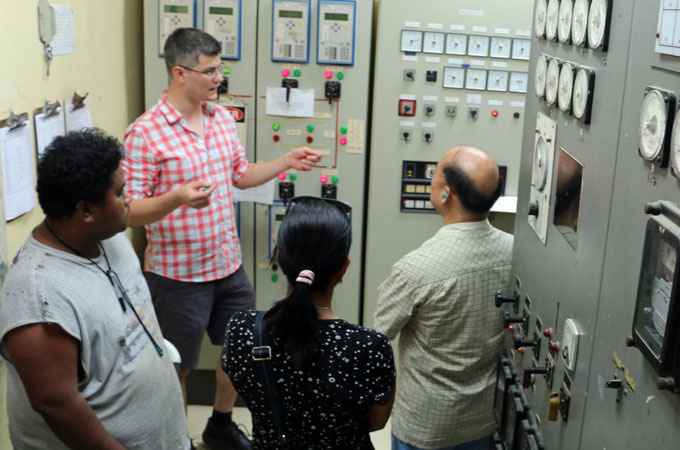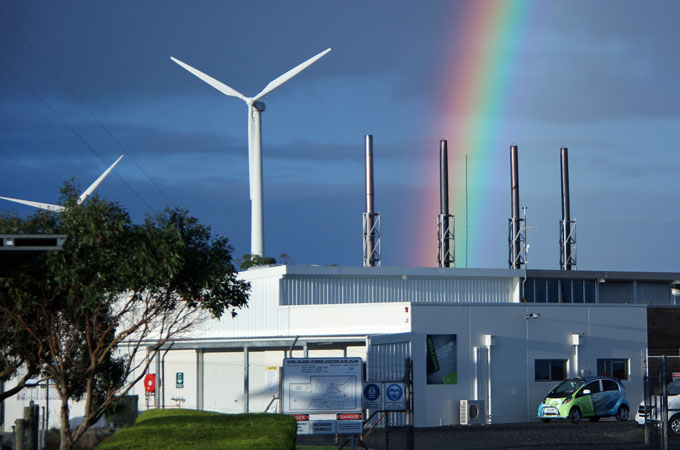THOUGHT LEADERSHIP
A bright future for RAPS: reliable, cheaper power for remote areas
Remote area power systems that integrate renewable energy sources such as solar and wind with storage or diesel backup are increasingly allowing remote communities to become more self-sufficient and sustainable by providing dependable, secure power that is cheaper than relying on diesel-generated power alone.
Saving money and the environment
Using renewable energy technologies to create power in a range of remote areas such as small to medium towns, mines or even islands makes perfect sense. The fuel usually used in these locations is diesel, which is expensive, vulnerable to broader pressures on price and supply, and can also be slow, complicated and costly to transport to remote areas.
Falling costs of renewable technologies, free fuel from the sun and wind and large savings on displaced diesel add up to significant commercial motivation to move towards renewable or hybrid systems. But there’s also a compelling environmental argument for developing RAPS – it reduces consumption of fossil fuel, lowers carbon emissions and helps reach sustainability goals.
This environmental argument carries extra urgency for low-lying island communities on the front line of climate change, as rising sea levels threaten their very existence.
Why Yap needs RAPS
To the north of Papua New Guinea, in the Western Pacific Ocean, lies one of these vulnerable islands: the postcard-perfect paradise of Yap. While Yap has already started to recognise the early impacts of climate change and increasingly severe weather events on its farms, coral reefs and palm-lined beaches, it has also witnessed at close range the high consequences of vulnerability to oil prices, as the world oil price shock in 2008 threw the neighbouring Marshall Islands into a state of fiscal crisis with the government having to bail out its own state-owned power utility.
As an early step towards reducing Yap’s heavy reliance on imported diesel for power generation, and to enable the island to rely as much as possible on indigenous, renewable resources, the Yap State Public Service Corporation (YSPSC) commissioned specialist power and water consulting firm Entura to design and supervise the delivery of a US$11 million integrated high-penetration renewable energy RAPS.
The RAPS project will also help Yap play its part in helping achieve the Federated States of Micronesia’s ambitious targets of 30 per cent renewable energy by 2020 and 70–100 per cent by 2050. The project will reduce fossil fuel consumption in Yap through developing renewable energy and improving the supply-side energy efficiency of the current grid. Once completed, the project aims to provide 17 per cent of Yap’s annual energy production and enable Yap to experience up to 70 per cent renewable penetration when conditions allow. The system is forecast to deliver an annual fuel saving of up to US$500 000.
Integrating renewables no longer a challenge
Until recently, integration issues have made it difficult to introduce large amounts of renewable energy into remote diesel-based electricity systems. High intermittency of renewable sources presented challenges for reliability and quality of supply in remote power systems. But new technological developments such as intelligent control systems, improved storage technologies and demand-side management assist with overcoming these concerns and increase the reliability of off-grid renewable systems.
As each RAPS is different, the challenge that remains is choosing the right solution and integrating it in the right way.
Yap’s power system is designed to meet the 2.2 MW load for the 7000 people living on the main island, delivering up to 1 MW of wind energy from small but robust turbines and 300 kw of remotely controlled grid-connected solar energy from the rooftops of seven government buildings. Two high-speed diesel generators have been included in the system, and have been selected for their responsiveness and ability to support higher renewable energy penetration and even out any energy fluctuations.
The clever trick to keep all these different electricity-generating assets working together smoothly to provide a continuous and reliable electricity supply is an innovative integration and control system. The overall design of Yap’s integrated high-penetration renewable energy system, combined with the automated integration and control system, balances and maintains the quality of the energy supply to maximise the amount of renewable energy used on the island.
Building capacity for the long term
The YSPSC is a sophisticated utility that fully embraces its commitment to provide clean and affordable power that is sustainable not only for the environment and the economy but also for Yap’s community in the long term.
The power system has been carefully designed to be able to realise future goals of operating at zero diesel, as well as to be able to be operated and maintained within the community rather than by external specialists.
YSPSC and Entura are working together to deliver the principles of ‘design and build, operate and maintain’, as opposed to a ‘build-neglect-rebuild’ paradigm, by working to develop capacity within the Yap community, so that the local people will not only be the owners of a new state-of-the-art energy system, but will also have the opportunity to develop the skills to operate and maintain it into the future.
Construction of the Yap RAPS is due to start in mid-2015 and finish in early 2016.
RAPS around the world
Entura and its parent company, Hydro Tasmania, have previously been involved with the delivery of hybrid off-grid systems and RAPS in the Solomon Islands, Vanuatu, King and Cape Barren Islands, and are currently assisting our clients in delivering a suite of projects in Australia, as well as in the Cook Islands.
Hydro Tasmania’s hybrid off-grid solution on King Island is now recognised as a world-first, achieving the ability to operate a megawatt-class power system solely on renewable energy sources for extended periods of time, when conditions allow. The King Island Renewable Energy Integration Project has also demonstrated that hybrid systems with the right mix of enabling and generation technologies are not only lower cost alternatives, but can also be more reliable and robust than traditional diesel generation in off-grid systems.
If you would like to discuss if a RAPS is the best solution to power your remote operations or community in a sustainable and cost-effective manner, please contact Silke Schwartz on +61 407 886 872 or Shekhar Prince on +61 412 402 110.
MORE THOUGHT LEADERSHIP ARTICLES
23 March, 2015









